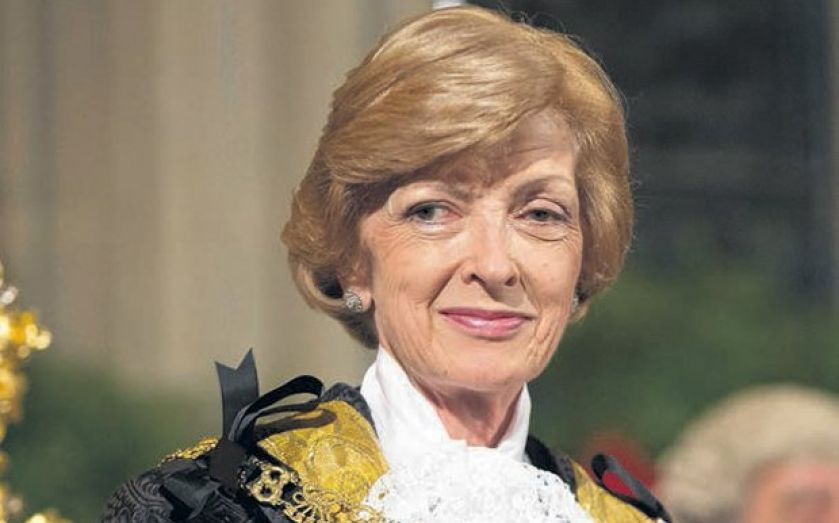The Woolf in Mayor’s clothing speaks out

The Lord Mayor of the City of London tells Elizabeth Fournier how her historic role puts her right at the heart of UK plc
THERE’S no such thing as a typical day in the life of the Lord Mayor of the City of London. On the morning that I meet the incumbent Fiona Woolf in her Mansion House office, she’s already been on an pre-breakfast tour of Royal Mail’s Mount Pleasant sorting office, and a team of staffers are patiently waiting outside for her next meeting.
“It feels like being on rollerskates,” she says of her time in the role, which began on 8 November last year and runs for just 12 months.
When Woolf was sworn in at the Guildhall’s traditional Silent Ceremony, she became only the second woman to be named as Mayor in the post’s 825-year history. It’s a position that she’s been only too keen to grab hold of and use as a platform to promote diversity across the capital.
“It was an obvious thing for me to do to seize the diversity agenda and see what I could do to bring people together and move it forward,” Woolf says.
“The perception is still that the City is very conservative and very male – even very ‘male and pale’ – but I now have 35 businesses coming together in a collective effort to not only share best practice and ideas, but also make a point that we all have a role to play and we’re all in this together.”
As well as sending three dedicated London buses out around the City to spread the word, the campaign is also organising a series of breakfast events sponsored by financial bigwigs like Coutts, Willis and Catlin, to make sure firms are left in no doubt as to how promoting diversity makes good business sense.
It’s clear that Woolf sees bringing businesses together as a key part of the role, and her jurisdiction means the focus naturally falls on the financial sector – the lawyers, accountants, bankers and insurance firms that make up so much of the square mile’s population.
It means that not only does the Lord Mayor need a working knowledge of global regulation, from Basel III to Solvency II, but she must also balance the interests of a disparate group of constituents, many of whom come knocking at the door of Mansion House hoping for an advocate.
“Discussions with financial services firms have really focused on how to regulate for future prosperity,” she says. “The outcome is that it would be good if I could use my convening powers to bring the industry together – whether it’s banking or insurance or asset management – to have this debate with the regulators in the room.”
It’s a lot to ask of someone with only a year to make their mark, but after a 40-year legal career dealing with major regulatory reform and projects in the energy industry – including the privatisation of the National Grid Company in 1990 – Woolf seems undaunted.
The job, however, is not without its frustrations. Though the corporation hasn’t singled out a preferred option for a new London airport, it’s clear on the need for more capacity, and for urgent action to move the process on. Again, Woolf’s corporate background helps lend some perspective.
“In 1991 my firm was instructed on both the new airport in Hong Kong and Terminal 5 at Heathrow. Ten years later the Hong Kong airport had been operational for nearly three years, but because the secretary of state had called in the decision on Terminal 5, in the UK we still had no planning decision at all.”
CV FIONA WOOLF
■ Studied Law at Keele University and took a diploma in Comparative Law at the University of Strasbourg.
■ Qualified as a solicitor in 1973 and joined Clifford Chance as a corporate and banking lawyer.
■ Joined CMS Cameron McKenna is 1978 and became a partner at the firm in 1981.
■ Was a member of the Competition Commission and a non-executive director of Affinity Water between 2005 to 2013.
■ President of the Law Society for 2006–07
■ Succeeded Roger Gifford as Lord Mayor on 8 November 2013
■ Lives in Mansion House with her husband Nicholas, a former tax partner at Arthur Andersen.